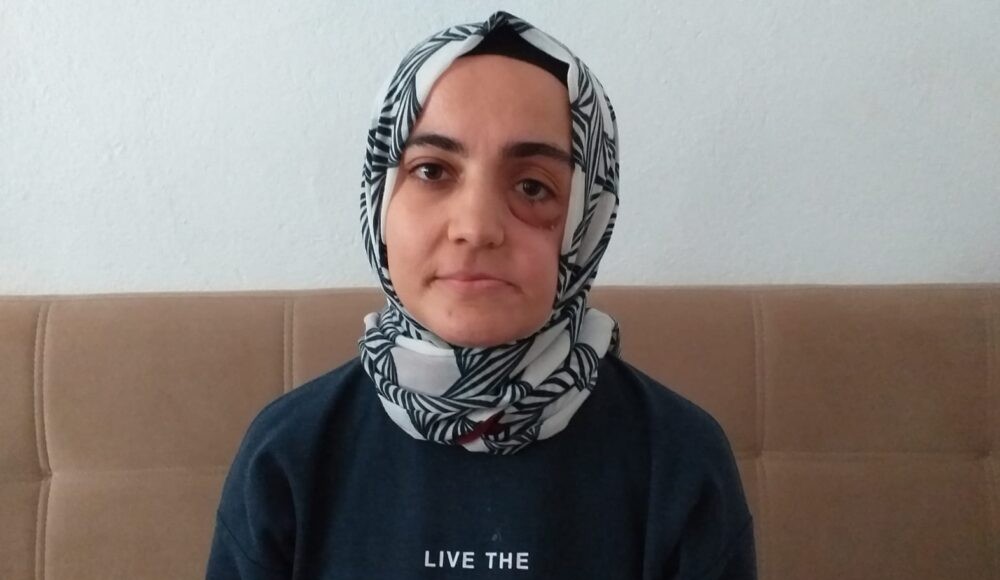Turkish Twitter users conducted a hashtag campaign on Friday calling on authorities to postpone the execution of the prison sentence of Ayşe Özdoğan, 34, who suffers from a rare form of cancer, the Stockholm Center for Freedom reported.
An appeals court on June 11 upheld a nine year, six month prison sentence for former teacher Özdoğan. She currently faces years in prison despite severe health problems.
The hashtags #AyşeÖzdoğanTutuklanmasın (Don’t arrest Ayşe Özdoğan) and #AyşeÖzdoğanİçinSesOl (Be a voice for Ayşe Özdoğan) were shared widely by Turkish social media users to appeal the Turkish government.
Özdoğan and her husband were detained on April 8, 2019 for alleged links to the Gülen movement. She was released due to her son’s heart condition, but her husband was sent to prison in southern Antalya province.
Özdoğan developed cancer seven months later and underwent an operation on November 12, 2019. However, she was arrested shortly after, convicted and sentenced to nine years, six months in prison.
Özdoğan’s arrest sparked outrage, and thanks to an online campaign started by Ömer Faruk Gergerlioğlu, a human rights activist and former deputy from the Peoples’ Democratic Party (HDP), she was released on appeal on December 27, 2019.
It was already too late for her second surgery, however, as the cancer had spread. Özdoğan’s tooth, palate, zygomatic bone and lymph nodes were removed in an emergency operation. Özdoğan lost her ability to see and hear after the operation due to the trauma her facial bones suffered.
Turkish President Recep Tayyip Erdoğan has been targeting followers of the Gülen movement since the corruption investigations of December 17-25, 2013, which implicated inmatethen-Prime Minister Erdoğan, his family members and his inner circle.
Dismissing the investigations as a Gülenist coup and conspiracy against his government, Erdoğan designated the movement as a terrorist organization and began to target its members. Erdoğan intensified the crackdown on the movement following a coup attempt on July 15, 2016 that he accused Gülen of masterminding. Gülen and the movement strongly deny involvement in the abortive putsch or any terrorist activity.
Critics have slammed Turkish authorities for refusing to release critically ill prisoners.
Gergerlioğlu said critically ill political prisoners were not released from prison “until it reaches the point of no return.” He depicted the deaths of seriously ill prisoners in Turkey who are not released in time to receive proper medical treatment as acts of “murder” committed by the state.
According to the Human Rights Association (İHD), there are more than 1,605 sick prisoners in Turkish prisons, approximately 604 of whom are critically ill. Although most of the seriously ill patients have forensic and medical reports deeming them unfit to remain in prison, they are not released. Authorities refuse to release them on the grounds that they pose a potential danger to society. In the first eight months of 2020, five critically ill prisoners passed away because they were not released in time to receive proper medical treatment.
